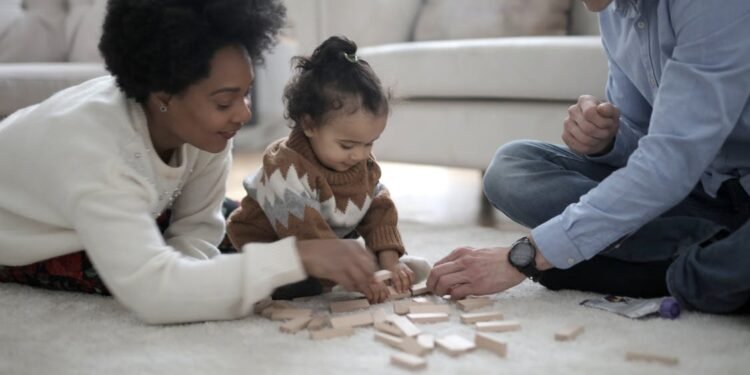The first two years of a child’s life are filled with rapid growth and development, making it essential for parents to provide the best care and nurture. Children experience significant physical, cognitive, and emotional changes during this critical stage, laying the foundation for their future well-being. Here are 5 essential parenting tips to help you make the most of these precious years.
Monitor Early Development
The birth of a child is a momentous occasion filled with joy and hope for the future. However, you must be vigilant about monitoring your baby’s development during the early stages of life. Unfortunately, in the US, 7 in 1,000 babies face birth injuries, and some of these injuries can have severe consequences on the child’s brain development. For instance, if a baby’s brain doesn’t receive enough oxygen during a difficult birth or experiences a severe head injury during delivery, it could lead to cerebral palsy.
Cerebral palsy can bring unique challenges to children’s lives, making everyday tasks that we take for granted, like controlling their hands, arms, and legs, quite difficult. Walking and sitting can become almost impossible. In the most severe cases, cerebral palsy can lead to intellectual disabilities, seizures, and difficulties with vision or speech.
Timely diagnosis and treatment are paramount when it comes to managing cerebral palsy. While there is no definitive cure, identifying the signs of cerebral palsy and other developmental issues as early as possible allows timely intervention. This can open doors to specialized treatments, therapies, and support which can significantly improve your child’s daily life and overall well-being.
If your child has been diagnosed with cerebral palsy resulting from a birth injury, it is crucial to seek legal support from experienced cerebral palsy lawyers. Consulting legal experts can provide valuable insights into the available options for filing a claim to seek monetary compensation. This compensation can be instrumental in covering the costs of specialized treatments, therapies, and supportive care needed to improve your child’s quality of life and provide them with the best opportunities for development and growth.
Practice Tummy Time
In the first few months of your child’s birth, it is necessary to encourage tummy time. Tummy time involves laying babies on their stomachs for brief periods while awake, which has incredible benefits for their growth.
During tummy time, your baby learns to use and strengthen the muscles they’ll need to roll over, sit up, crawl, and eventually take those triumphant first steps. At first, your baby may get fussy and frustrated but don’t worry; that’s entirely normal! Keep the initial tummy time sessions brief, allowing your little one to get accustomed to being on their tummy. Be patient and offer gentle encouragement as they navigate this uncharted territory.
And timing is important too. Choose moments when your baby is well-rested, fed, and in a good mood for tummy time. This sets the stage for an enjoyable experience, making them more receptive to the activity. As you lay down beside them, engaging them with smiles and gentle interactions, you’ll see the joy on their face, and your heart will swell with pride.
Forget the Word “Don’t”
How often have you found yourself irresistibly drawn to doing something you were explicitly told not to do? Psychologists call it reactance. When someone tells us what we cannot do, we are strangely more inclined to do precisely that! Picture a big red button with a sign that says “Do Not Press Me” – chances are, you’ll feel an overwhelming urge to press it.
Believe it or not, the same principle applies to our little ones. Like adults, children experience reactance, making them more likely to engage in a behavior when told not to do it. As parents, we must understand this quirk of human psychology and use it to our advantage when communicating with our children.
So, here’s a simple yet powerful parenting tip: always tell your child what they should do rather than what they shouldn’t.
- Instead of saying, “Don’t scream,” – say, “Use your inside voice.”
- Instead of telling them, “Don’t interrupt,” – say, “Wait for your turn to speak.”
- Instead of scolding, “Don’t run,” – encourage them with, “Use your walking feet.”
By providing clear, positive instructions, we give our children an action to comply with, something constructive to do, rather than merely asking them to stop a behavior or inhibit an impulse. This empowers them to make better choices and reinforces positive behaviors.
Look the Other Way
Two-year-olds are fascinating little learners in the middle of the preoperational stage of cognitive development. During this time, they are like sponges, soaking up experiences and information from their surroundings. One of the ways they learn is by repeating behaviors over and over again.
When dealing with minor misbehaviors, such as your little one throwing food on the floor, it might be tempting to react strongly or intervene immediately. However, if you react strongly, they will do it again and again and again because they will want to see your unusual reaction.
We avoid inadvertently reinforcing these actions by ignoring minor misbehaviors that do not pose any immediate danger. Studies have shown that actively ignoring unwanted behaviors but giving extra attention to desirable behaviors can lead to more appropriate and respectful behaviors.
So the next time your child throws food on the floor, try staying calm and composed instead of reacting with frustration or providing excessive attention. They will soon realize that throwing food doesn’t elicit the desired response, and the behavior will gradually diminish.
No Screen Time
In today’s digital age, it’s incredibly tempting to hand our wailing baby an iPad and let them indulge in endless hours of colorful videos or games. However, as alluring as screen time may be for parents and children, it can seriously affect a child’s development.
The most concerning consequence of excessive screen time is the risk of addiction. We’ve all seen those toddlers who throw tantrums the moment their iPads are taken away from them. But we must understand that it’s not their fault. These devices, apps, games, and videos are specifically designed to captivate and engage young minds, often leading to dependency. Instead of finding joy and fulfillment through real-life experiences like going to the park or engaging in creative play, children rely on intangible rewards like notifications, stickers, and virtual tokens.
Beyond the risk of addiction, excessive screen time can also impact a child’s language development. Engaging in reciprocal dialogues with children is crucial for their language and social interaction skills. The back-and-forth conversation, sharing facial expressions, and reacting to each other all improve language abilities in young children. Passively watching videos on a screen can limit these communication skills, hindering their language development.
Conclusion
These parenting tips are designed to foster your child’s growth and development, create lasting memories, and strengthen the bond between you and your little one. Embrace the joy of discovery, encourage their imagination, and savor every precious moment together as you embark on this magical adventure of early parenthood.











